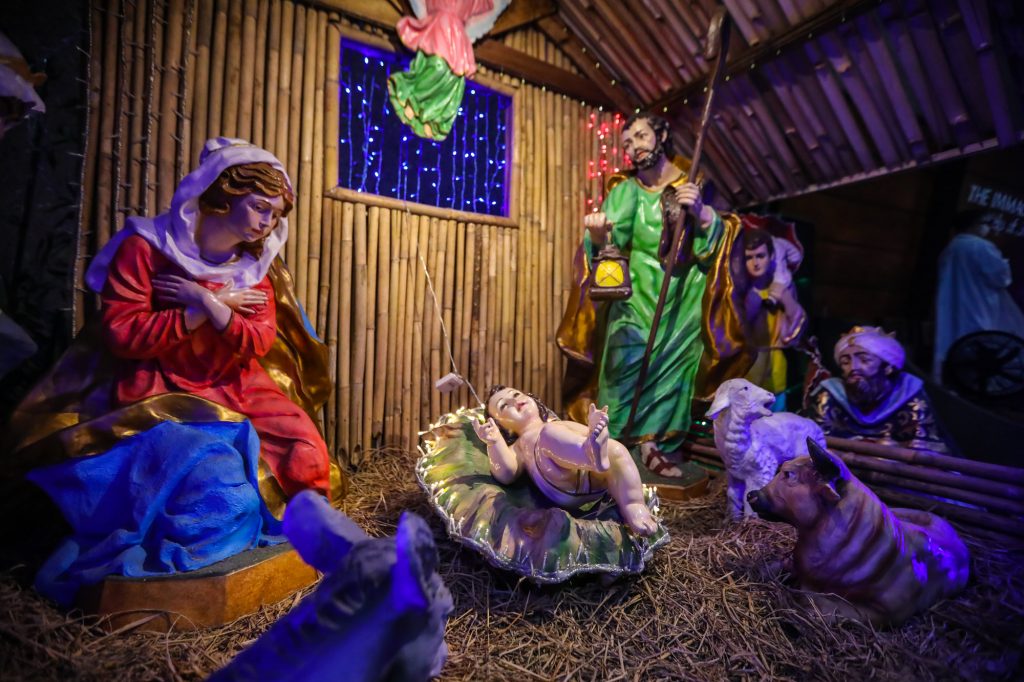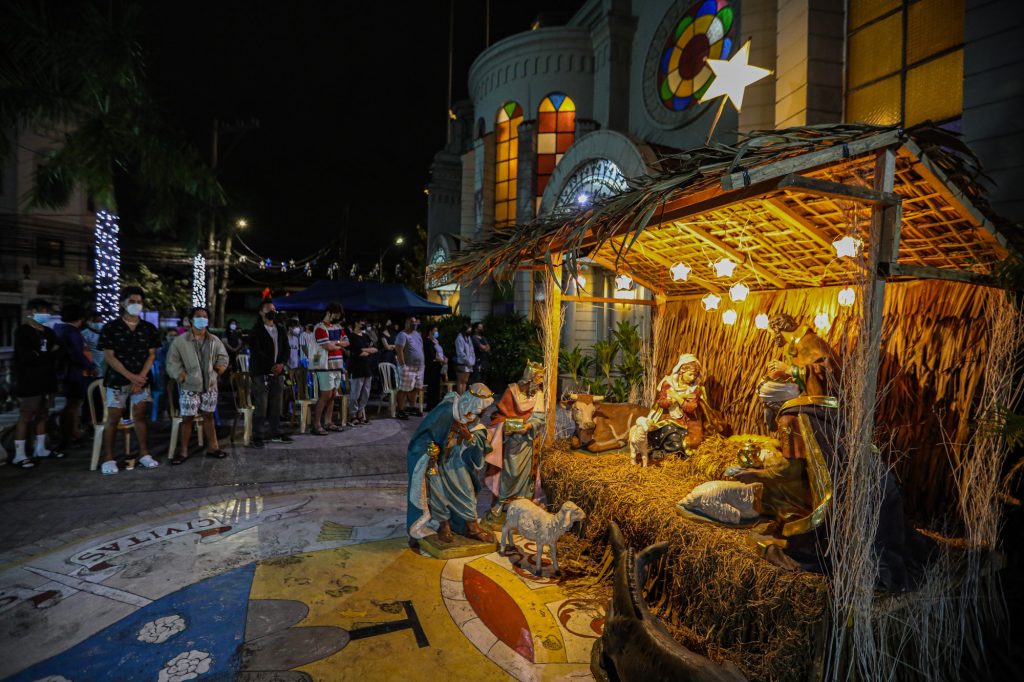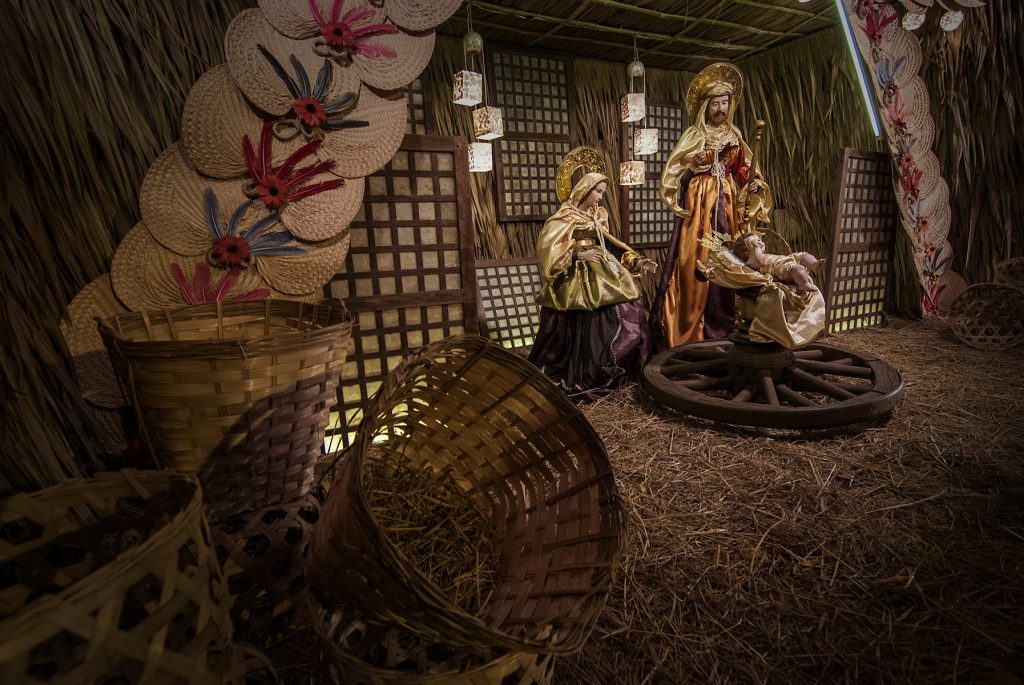
A reflection on Jesus’ birth allows us to see more than the simplicity of life, we feel the dire situation of humanity.
In the midst of the opulence of kings and governors with their wealthy and business friends, the poor are searching for a just place in society. The Christian imagery is of a child born poor and lowly, after his family’s hunt for safe haven in a stable, in the ruins, or at the inns where they were turned away. There are many Islamic narratives of Jesus’ birth too; among them is the birth of Jesus in Bethlehem beside a palm tree with a manger, where the baby Jesus and Mary ate the fruits of the tree to sustain them.
Cycle of destruction
As our metaphoric time machine brings us to the human suffering of the present day, we must recognize that we face social, ecological and economic destruction of humanity’s own making. In this advanced age, we can alter the physical contours of nature and even components of human life. We can flatten mountains, pollute the air, undermine a livable future, and even systematically choke out and kill human life.
But why can’t we stop natural disasters? We cannot stop them, because we are enhancing them. We continue to destroy nature, as if we own everything and as if there are no consequences to such selfish ways.
We cannot stop social disasters. Some of us allow the poor to be poor. We ignore their suffering. Politicians use the poor as their power base and keep them in line with patronage politics. The military justifies bombings and drone attacks on them, but remains mute when we ask them to address the root causes of rebellion.
We passively watch the selection of who dies: small time drug peddlers and users are tokhanged (executed), activists and farmers are gunned down, and even the unborn are left without protectors.
An oppressive economic cycle perpetuates the power of business and political elites, rather than improving the social and economic lives of the majority. Just a few own most of the lands and control the resources of the country, while the majority of the Filipino people live without land titles, security of tenure, and access to health and other basic social services.

Lack of structures of life
This Christmas 2021, we reflect Jesus’ birth in the aftermath of Typhoon Odette. Our people— our real church—are still in the throes of the typhoon’s destruction. Lives have been lost; homes have been destroyed; the most basic of necessities like food and water are in short supply. We grieve for the more than 400 brothers and sisters who perished and continue to search for those missing.
Humanity must awaken to recognize that we are degrading what nourishes life, creation itself. The ecosystems that support humanity could be available for us, but we are altering natural systems with our anthropocentric greed. We should be able to drink from rivers and streams and eat the food from the land and seas. Now, we thirst for clean water.
Restoring ecological balance is imperative as an act of valuing God’s creation. It is essential for future survival and should not be a romanticization of our past. The disruption of ecological balance and disintegration of the structures that support life will only intensify destructive typhoons and other extreme climate events. The extinction of species that we currently witness may eventually lead to the total death of planet Earth. Our cycles of indifference and greed must be broken and replaced with concern and compassion for the people and the planet.
Restoring quality of life
After the storms, we must inclusively respond to the state of calamity. Uplifting the lives of those heavily affected, restoring public utility services, and attending to the needs of ordinary Filipinos, especially the poor, should be at the center of our response. We must guard against selfish actions of politicians, elites and business people. When the many are suffering, to assist first the heavily damaged sugarcane plantations and other industries to the benefit of a few is wrong! We must resist, expose, and denounce self-serving and politically motivated priorities. As a pastor of our people, I exhort each one to practice social solidarity and service to the poor and needy at this time.

Peace as purpose
The mark of Jesus’ birth is peace. It is not about riches or physical gifts. Jesus’ birth flows through a timeline of social discord in that context; yet, the poor shepherds and the magi rejoiced in an ambience of peace.
We know that war and conflict continues on our island between the military and the NPA. The loss of lives and other costs make our desire for building peace ever more prescient. Christmastime used to bring a ceasefire between the military and the rebels; in these last years, why are we not observing ceasefires? Can we go back to the negotiating table? Let us speak of peace and address the root causes of rebellion. Our government spent more on the military than for integral development, even less for education. In his 2022 World Day of Peace message, Pope Francis called for dialogue between generations to build peace,
“Dialogue entails listening to one another, sharing different views, coming to agreement and walking together. Promoting such dialogue between generations involves breaking up the hard and barren soil of conflict and indifference in order to sow the seeds of a lasting and shared peace.”
The whole life of Jesus speaks of love as an antidote to injustice. We can stop the killings, we can end the violence—if we all commit to sowing the seeds of peace this Christmas.
Journey of life
The Church calls for a synodal journey with explicit growth and approaches towards becoming a renewed church. In our pastoral experience, this becomes real when our journey is rooted in the sufferings of our people. We cannot stay within our gated comforts as clergy and religious. It is anathema to speak of our church investments, when we fail to offer our ministries and resources to the needy and the poor (at this time, to the victims of the typhoon). We fall short as a synodal community when we only create church-goers, rather than committed members of the Church. We journey with Jesus and accompany our people on a quest toward a beautiful life, even if at times our pathways are troubled. Even in the midst of human suffering, Jesus’ presence this Christmas time inspires us to live for hope and journey with the people, as they seek out a safe haven where a lasting and shared just peace has taken root.
Bishop Gerardo “Gerry” Alminaza, D.D. is the prelate of the Diocese of San Carlos in the central Philippines. He is the vice-chairperson of the Episcopal Commission on Social Action, Justice, and Peace of the Catholic Bishops’ Conference of the Philippines and a staunch human rights and environmental defender.
Source: Licas Philippines
0 Comments